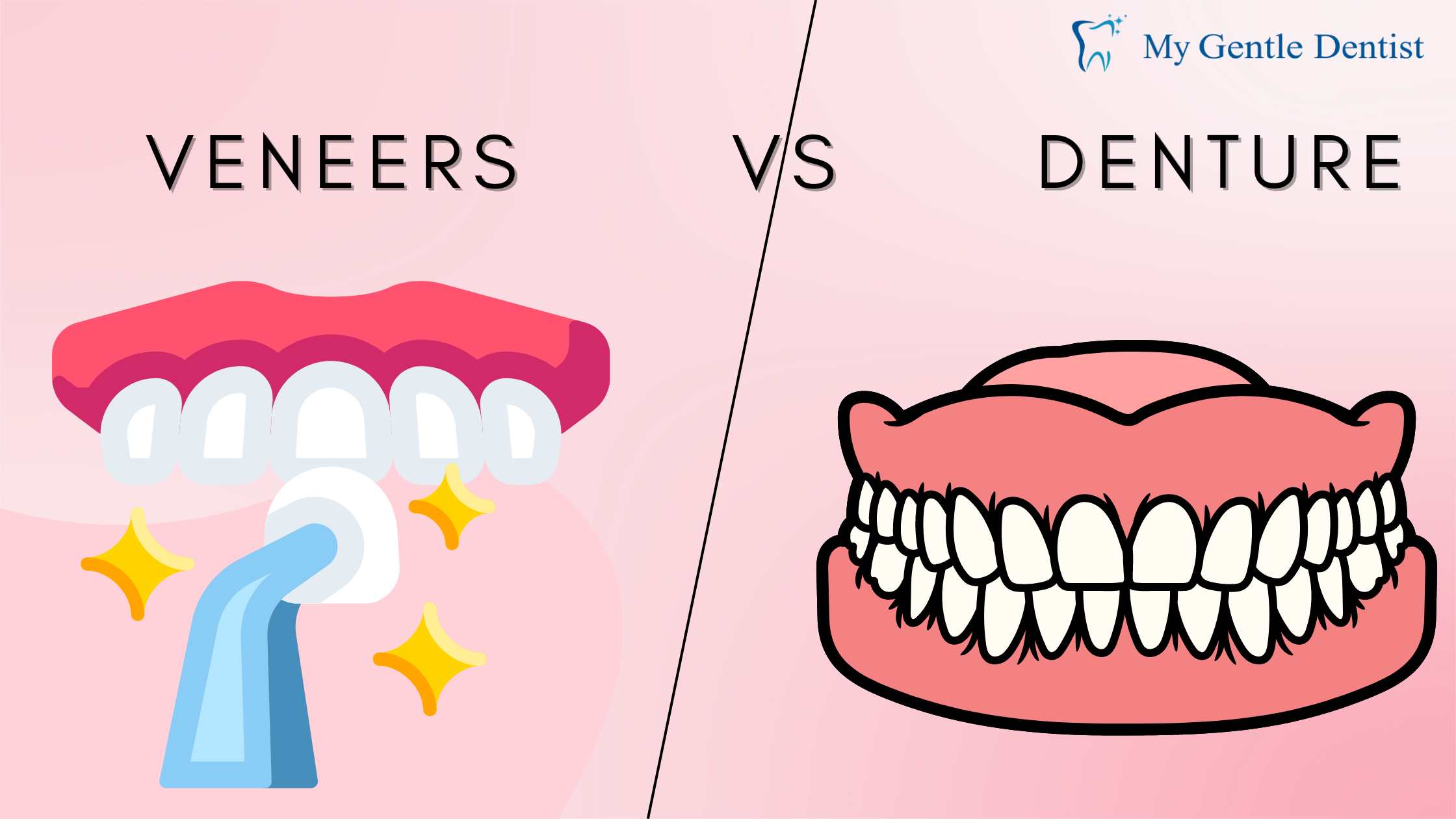When it comes to enhancing your smile, understanding the different dental options available is crucial. Veneers and dentures are two common dental procedures that can address various oral health concerns and help you achieve a beautiful smile.
Understanding Dental Options
Introduction to Veneers and Dentures
Veneers are thin shells made from porcelain or composite resin that are bonded to the front surface of your existing teeth. They are primarily used to improve the appearance of your smile by covering imperfections and creating a natural-looking smile. On the other hand, dentures are removable dental appliances that can replace missing teeth and restore your ability to eat and speak comfortably.
Key Differences Between Veneers and Dentures
The main difference between veneers and dentures lies in their purpose and permanence. Veneers are a cosmetic dental solution that enhances your smile by improving the appearance of your natural teeth, while dentures are primarily used to replace missing teeth. Veneers require minimal alteration to your existing teeth and are considered a permanent solution, whereas dentures may need adjustments and replacements over time.
Exploring Cosmetic Dental Procedures
Both veneers and dentures can help transform your smile and improve your overall oral health. Whether you opt for porcelain veneers or traditional dentures, consulting with a dentist to determine the best option for your dental needs is essential. By exploring the different dental procedures available, you can enhance your smile and address any dental problems you may be facing.
Comparing Veneers and Dentures
When considering dental options for enhancing your smile, you may come across the choice between veneers and dentures. Both options have their own set of advantages and disadvantages that are important to consider before making a decision.
Pros and Cons of Veneers
Veneers, whether porcelain or composite, offer a natural-looking solution to improve the appearance of your smile. They require minimal alteration to your existing teeth and are considered a permanent dental treatment. However, veneers may be more costly compared to other options, and they may not be suitable for individuals with extensive dental issues or damage.
Pros and Cons of Dentures
Dentures, both partial and full, provide a practical solution for replacing missing teeth. They are removable and can restore your ability to eat and speak comfortably. However, dentures may require adjustments over time, and some individuals may find them less comfortable than other alternatives. Additionally, dentures do not stimulate the jawbone like dental implants do, which can lead to bone loss over time.
Choosing Between Veneers and Dentures
When deciding between veneers and dentures, it’s essential to consider your individual dental needs and goals. If you are looking to improve the appearance of your smile and have minimal dental issues, veneers may be the right choice for you. On the other hand, if you have missing teeth and are seeking a functional solution, dentures might be a more suitable option. Consulting with a dentist is crucial in determining the best treatment plan to achieve your desired smile.
When considering options for a smile makeover, it’s important to explore the benefits of combining dental implants with veneers. Dental implants provide a stable foundation for veneers, ensuring a long-lasting and natural-looking result. The combination of these two procedures can address multiple aesthetic concerns while restoring functionality to your smile.
When comparing the longevity and maintenance of veneers versus dentures, it’s essential to consider the differences between the two. Veneers are a permanent solution that requires minimal maintenance, while dentures may need adjustments and replacements over time. Consulting a cosmetic dentist at My Gentle Dentist can help you determine the best option based on your individual needs and goals.




